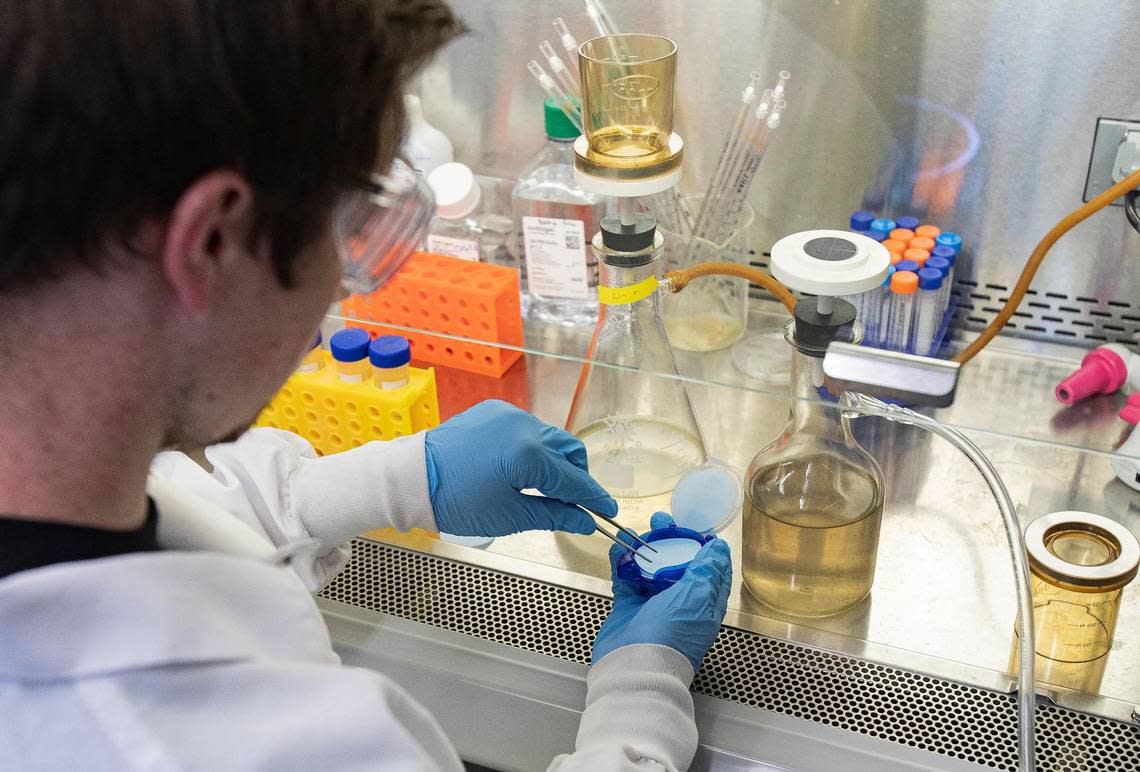Idaho has ‘very high’ levels of COVID in wastewater. Our weather may be making it worse

Boise is seeing the highest levels of COVID-19 in its wastewater since a big spike in January.
The surge follows a nationwide trend as cases creep up across the country. Infection rates in Idaho have been steadily rising since May, prompting some concern from public health officials as people travel for vacations and gather for summertime barbecues and other events.
Recording-breaking heat and wildfire smoke has also swamped the Treasure Valley for weeks, driving residents indoors and into air-conditioned, smoke-free spaces.
Deputy State Epidemiologist Dr. Kathryn Turner said the weather may have contributed to the rise in COVID-19 cases.
“Obviously people are gathering a lot in the summer,” Turner said. “The other thing is that when it gets real hot, we all go inside, and we’re breathing each other’s air. That’s a really good way to spread the virus. It’s also hard right now because of the air quality. Of course, one of the precautions we always tell people if they want to avoid transmission is to get a lot of fresh air, be outside, that sort of thing.”
But when the temperatures soar into the triple digits for days at a time — as they did again starting on Friday with highs forecast mostly in the 100s through at least Tuesday — and when the air quality dips because of the wildfire smoke shrouding the skies, it’s hard to find an opportunity to get fresh air.
Turner said that while Boise typically sees a bump in cases in the summer, transmission of the virus appears to be higher this time around.
The city’s wastewater dashboard reflects that. Samples taken from the city’s two sewage treatment plants show a steady increase in COVID-19 spread since April, reaching levels not seen since early January. The city of Boise treats wastewater for itself, Garden City and Eagle.
Statewide, Idaho has “very high” levels of the virus in its wastewater, according to estimates published by the U.S. Centers for Disease Control and Prevention.
“The good news is that we’re not seeing a huge spike in emergency-department visits or some of those other measures of severity,” Turner told the Idaho Statesman by phone. “So far, most of the infections seem to be milder. But I have heard that some people who had been infected previously report that their symptoms are not as mild as they were the last time they got infected.”
There has been a small uptick in COVID-19-related emergency-room visits, she said.
She said public health officials have noticed waning immunity as fewer people get updated vaccine shots and as the virus evolves. She said early this fall is a good time to get the vaccine.
The CDC recommended in late June that people age 6 months and older get the 2024-25 COVID-19 vaccine, which is expected to become available later in August or in September. The CDC said some 2023-24 COVID-19 vaccines will expire this summer.
“It’s not really a booster,” Turner said. “It’s becoming kind of like your flu shot — you know, you get it every year. We’re moving in that direction with regard to COVID-19 vaccines. I think we can expect to see an annual shot that is formulated specifically to what is circulating.”
Brain fog, fatigue and fear of crowds. Boise residents share about post-pandemic life
COVID-19 is surging. Time to mask up or get a booster? What a Boise medical expert says
Are Idaho’s rural hospitals on the brink of collapse? What medical leaders are saying




